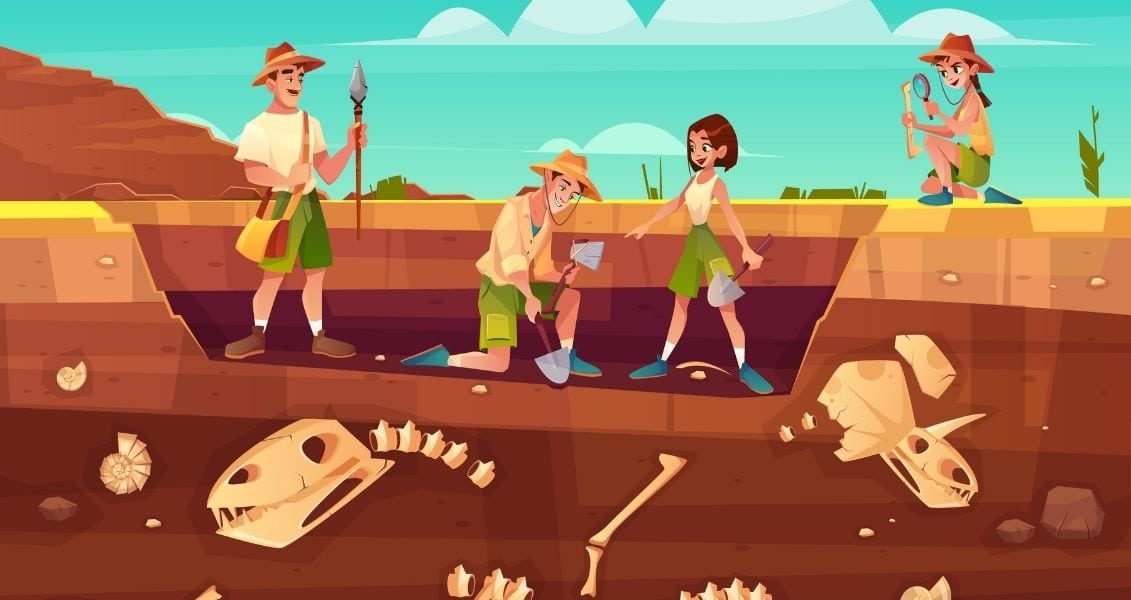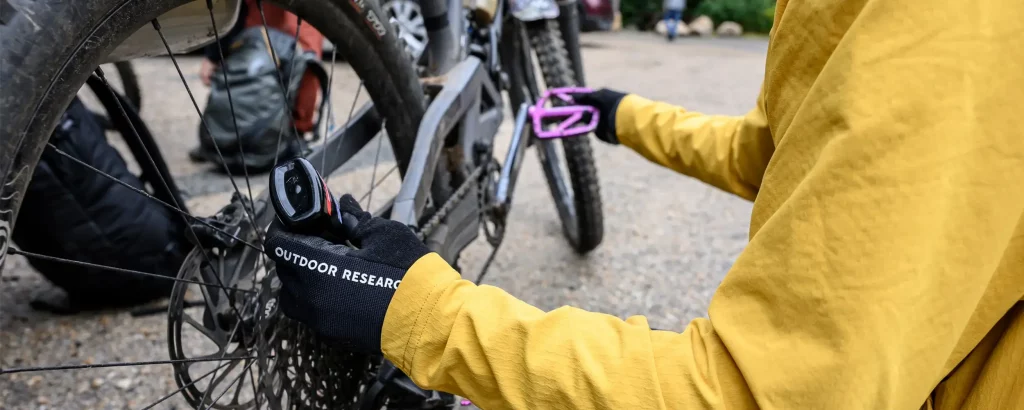Archaeologist’s Day
What day is it?
Archeology is a broad discipline devoted to the study of ancient culture and history through the discovery and study of material objects, such as buildings, tools, or pottery. Since most of humanity’s existence was before the advent of writing, it is archaeological finds that play an important role in understanding our distant past. Although archeology is considered a very romantic profession, archaeologists themselves know that their work requires true professionalism and dedication. That is why the work of archaeologists in Ukraine is honored at the official level, celebrating a professional holiday every year on August 15 — Archaeologist’s Day.
How did the idea to celebrate the Archaeologist’s Day come about?
Without a doubt, there have always been people interested in material evidence of the past, so most cultures have a tradition of collecting and honoring ancient relics. But it is believed that archeology as a discipline was born in Europe in the 15th and 16th centuries thanks to the spread of the philosophy of humanism, which highly valued art. It was then, during the Renaissance, that the inquisitive upper class began collecting antiquities from Ancient Greece and Rome, seeing them primarily as works of art rather than historical artifacts.
The popularity and prestige of such collections led to the fact that wealthy nobles began to provide funds for excavations in order to have more interesting objects in their homes. Thus, thanks to the desire of the Queen of Naples to obtain ancient sculptures, Herculaneum and Pompeii were partially excavated – two famous ancient cities destroyed during the eruption of Vesuvius in 79 AD.
Development of archaeology
A new phase in archeology began with Napoleon Bonaparte’s invasion of Egypt in 1798. To understand the Egyptian people and their past, Napoleon brought to the country 175 researchers of various specialties with a mobile library, special tools and measuring devices. The result of their work was the illustrated “Description of Egypt” published in 1809, a book that aroused interest in the history of Ancient Egypt in Europe. In 1822, Jean-Francois Champollion deciphered the text of the Rosetta Stone, revealing to the world the mystery of Egyptian hieroglyphs. This discovery marked the beginning of a new complex science — Egyptology.
The rapid development of archeology in the 19th century was facilitated by discoveries in biology and geology. British geologist Charles Lyell created a new system of uniformitarian stratigraphy that gave archaeologists a reliable time scale for dating artifacts. Lyell’s work and the publication of Charles Darwin’s book “On the Origin of Species” each separately popularized the idea of evolution, so the theory of extremely ancient human history gained more and more supporters.
The 20th century began with significant events in archeology — in 1904, the British archaeologist Flinders Petrie’s publication “Methods and Aims of Archaeology” described a systematic method of excavation. Phenomenal discoveries, such as the discovery of Tutankhamun’s tomb in 1922 or the excavation of the royal tombs of Ur in 1926, which showed people the forgotten Sumerian civilization, contributed to the growth of interest in archaeology. Archaeologists began to work beyond the borders of the Middle East, the Mediterranean and Europe, and finally archeology became a recognized science.
Radiocarbon analysis
Undoubtedly, the main technological achievement of the 20th century for archaeologists was the advent of radiocarbon analysis, the theory of which was developed by the American scientist Willard Libby in 1949. Despite some limitations of this method, it made a real revolution in research, because for the first time it was possible to establish an accurate dating for organic finds, for example, bones. Other developments appeared, which were often a by-product of military technology. For field archaeologists, the most important thing was the use of geophysical research, which made it possible to determine in advance, even before the start of excavations, what lies under the soil layer. Using these methods, the ancient Roman city of Viroconium, on the site of which modern Wroxeter in England is located, has been explored, although only part of it has been excavated.
Archaeological excavations in Ukraine
In Ukraine, the first documented archaeological excavations date back to the 17th century – it was then, by order of the Metropolitan of Kyiv and Galicia Peter Mohyla, excavations and reconstruction of the Tithe Church, destroyed during the capture of Kyiv by the Mongol-Tatars, were carried out. Later, research on Scythian mounds and ancient settlements on the Black Sea coast began in the southern regions of our country. In general, the territory of Ukraine turned out to be rich in archaeological finds, in particular, among the monuments of the Stone and Copper Age, the central place is occupied by the discovery of the agricultural culture of Tripillia.
Archaeologist’s Day as an unofficial holiday, it existed even during the times of the USSR, and one of the versions of its origin is connected with Ukraine. From 1934 to 1947, the famous Trypil expedition on Ukrainian lands was led by Tetyana Passek, who celebrated her birthday on August 15. Every year, the expedition workers celebrated the birthday of their leader, until the date began to be perceived as a professional holiday for all archaeologists.
In 2008, the Ukrainian authorities, supporting the public initiative and honoring the work of Ukrainian archaeologists, established a professional holiday at the official level – the Archaeologist’s Day. The date remained traditional – August 15. By the way, in other countries of the former USSR, such as Russia and Belarus, Archaeologist’s Day still remains an unofficial holiday.
Archaeologist’s day in history
-
1822Ancient Egyptian hieroglyphs were deciphered for the first time.
-
1893Archaeologist Vikentii Khvoika discovered the first settlement of Trypilians during the excavations, which were carried out just on one of the streets of Kyiv.
-
1904Thanks to archaeological excavations on the island of Crete, it became known about the existence of the Minoan civilization.
-
1919The Institute of Archeology of the National Academy of Sciences was founded in Ukraine.
-
1922Thanks to the British archaeologist Howard Carter, people learned about the contents of the tomb of the Egyptian pharaoh Tutankhamun.
-
2008By decree of the President of Ukraine, August 15 was declared a professional holiday – the Day of the Archaeologist.
Frequent Questions and answers about the Archaeologist’s Day
Specialists take into account certain conditions necessary for people’s life – the landscape, access to water sources, trade and migration routes, the nature of vegetation. Studying the territory from the air, that is, aerial photography, allows you to better see the possible traces of ancient civilizations. But many excavations begin thanks to accidental finds, for example, when laying pipes or digging a foundation.
Classical (or ancient) archeology is called archeology that studies the history of Ancient Greece and Rome. It was classical archeology that arose in the Renaissance, which became the basis for general archeology as a science.
The first stage of such work is field reconnaissance, during which archaeologists study the history of the region, and the very process of extracting artifacts from the ground, which are numbered, photographed, treated with a protective solution and recorded in the catalog. The second stage is the study of finds in laboratory conditions, the third is the preparation of publications, monographs, historical conclusions based on archaeological research.
Now there is a separate direction in archeology – the so-called virtual archeology. It is based on modern modeling, three-dimensional graphics and reconstruction. For example, archaeologists create a 3-D reconstruction of the area based on ancient maps or a three-dimensional model of any artifact.
He must have extensive knowledge of various sciences related to archaeology. First of all, the work of an archaeologist requires knowledge of history, one must also be knowledgeable in geology, geography, soil science, and scientific restoration. Very often there is a need to study such disciplines as anthropology, ethnography, linguistics, numismatics and many others. Usually, archaeologists choose a separate specialization for themselves — a certain historical period and region.
How to celebrate Archaeologist’s Day?
This holiday falls precisely on the “field season”, so many archaeologists celebrate it in expeditions. Usually, on the day of the professional holiday, a traditional “initiation” into the profession with various humorous competitions is held for novice archaeologists.
Archaeological conferences are also held on this day, where specialists can exchange new developments, achievements and opinions. Therefore, on August 15, it is necessary to congratulate all acquaintances whose activities are related to archeology.
On the Day of the Archaeologist, it is appropriate to visit one of the museums, for example, a museum of local history, because thematic exhibitions dedicated to archeology are held there. You can also organize a trip to any archaeological site by ordering a tour in advance.
Even without leaving home, you can celebrate Archaeologist’s Day and have fun at the same time – just watch one of the films about archaeological excavations and incredible finds. The choice of such films is quite wide, because their genre is adventure, that is, one of the most popular. And there are also board and realistic computer games on the topic of archaeological excavations, interesting books about archaeologists and their work – from fiction to popular scientific publications.
Why is this day important?
This day is designed to popularize the interesting and important science that it is archeology, because it is she who gives people the knowledge of the history and heritage of ancient cultures. But first of all, it is a professional holiday, which is why it draws attention to the role of archaeologists in the research and preservation of the material heritage of antiquity.
Without the work of archaeologists, a large part of historical knowledge simply would not exist, because people began to leave written evidence quite recently, compared to the entire period of their existence. In addition, written documents can be biased, based on the beliefs and mistakes of the people who wrote them, unlike archaeological artifacts, which are always unbiased.
In addition, the purpose of archaeological research is to understand how and why people’s lives changed over time. Archaeologists look for patterns in the evolution of significant events, such as the development of agriculture, the emergence of urban settlements, or the demise of powerful civilizations. As a result, it allows us to better understand the changes in our modern life and plan our future actions correctly. Ultimately, archeology is both a science and a profession, important because it fulfills the need inherent in humanity at all times to learn about one’s roots and to know one’s own nature.
When will we celebrate Archaeologist’s Day??
| Year | Date | Weekday |
|---|---|---|
| 2021 | August 15 | Sunday |
| 2022 | August 15 | Monday |
| 2023 | August 15 | Tuesday |
| 2024 | August 15 | Thursday |
| 2025 | August 15 | Friday |


































